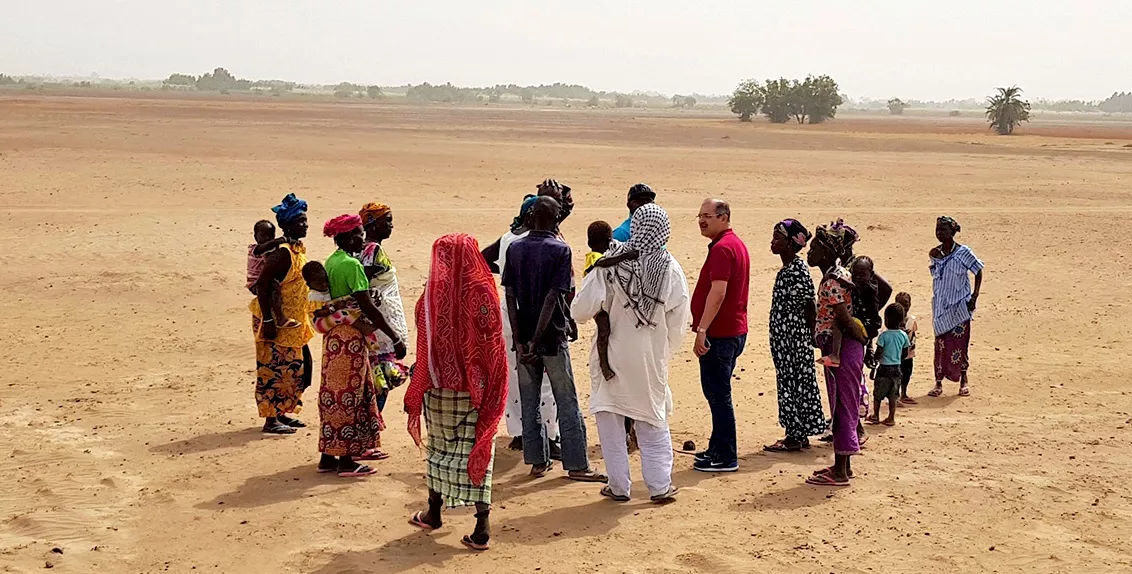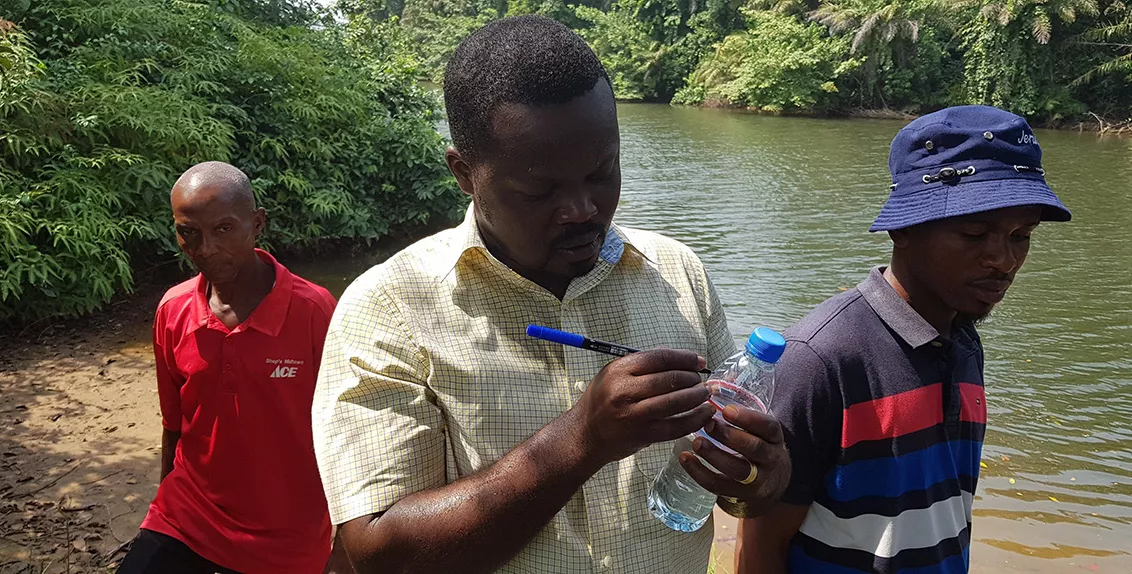Helping smallholders cope with soil salinity in sub-Saharan Africa
22 July 2020
The International Center for Biosaline Agriculture (ICBA) is working with smallholder farmers, including women, in salt-affected areas of seven sub-Saharan African countries to help them better deal with the challenges of soil salinity and climate change.
Under a four-year project called “Improving Agricultural Resilience to Salinity through Development and Promotion of Pro-poor Technologies” (or RESADE), scientists have been working with different national partners since 2019 to map salt-affected areas, conduct preliminary studies and establish best practice hubs.
Funded by the International Fund for Agricultural Development (IFAD) and the Arab Bank for Economic Development in Africa (BADEA), the project aims to introduce salt- and drought-tolerant crops and agronomic management practices in rural communities in Botswana, The Gambia, Liberia, Mozambique, Namibia, Sierra Leone, and Togo.
The project will also help to develop value chains for new crops and build the capacity of farmers and extension workers in salinity resilience and climate-smart agriculture.
To achieve the objectives, scientists are using a participatory approach involving all beneficiaries at every stage of the project implementation. As part of this work, scientists have started setting up at least one best practice hub in each country. One such hub is in the final stage of establishment in an area of one hectare in a village in Maritime Region in Togo.
The project team is also encouraging local smallholders to join a group of 50 pioneer farmers in each hub to ensure their greater involvement in the project activities. These farmers will be directly engaged in testing and evaluating crops and agri-technologies. Their knowledge of local food preferences and markets will help to guide the selection of crops and agri-technologies.
They will also be trained as trainers to pass on their knowledge to their peers. They will learn how to identify and test salt- and drought-tolerant varieties of local and other crops and manage them efficiently.
The project will help around 11,550 smallholder farmers (at least half of them will be women) to adopt new cropping systems that are resilient to salinity and climate change. This will increase agricultural productivity in salt-affected areas by 30 percent and smallholder farmers’ incomes by 20 percent.












